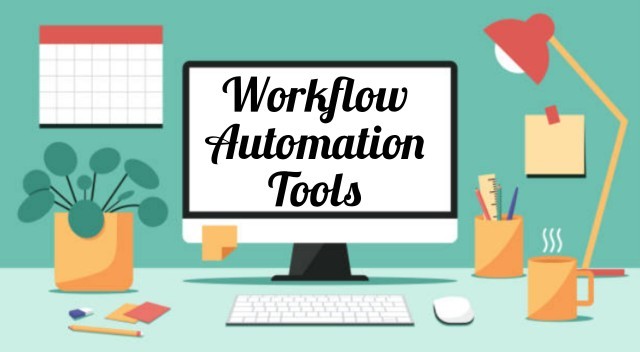Remote work has become common in recent years, and for good reason. It offers employees the flexibility to work from anywhere. It can be a great way for businesses to cut costs and access a global talent pool. However, there are also some important legal considerations that companies and employees must be aware of regarding remote work.
Depending on where your employees are located, there may be different labor laws, tax considerations, and other regulations that you need to comply with. How equipped are you with information regarding legal considerations for remote work? That’s where we step in.
This blog post will detail everything about legal considerations for remote work.
READ ALSO: Remote Work Glossary: 30+ Unique Terms and Phrases
Legal considerations for remote work
1. Understanding the Legal Implications of Remote Work
One of the biggest legal considerations when it comes to remote work is the issue of jurisdiction. When you have employees working remotely, they may be located in different states or even different countries. This can create a complex web of legal obligations and compliance requirements that you need to navigate.
For example, if you have an employee working remotely from a different state, you may need to register your business in that state and comply with their employment laws. This could include things like payroll taxes, worker’s compensation requirements, and labor regulations.
Similarly, if you have employees working remotely from different countries, you may need to comply with the laws and regulations of those countries. This can be especially challenging when it comes to things like taxation, data privacy, and employment contracts.
To stay compliant, it’s important to do your research and understand the legal requirements for each location where your remote employees are based. This may involve consulting with legal experts or working with a professional employer organization (PEO) that can help you navigate the complexities of multi-state or international employment.
READ ALSO: Remote Work Policy: Best Ways To Create It for your company
2. Worker’s Compensation and Remote Work
Another critical legal consideration for remote work is the issue of worker’s compensation. If an employee is injured while working remotely, you need to ensure that they are covered by your worker’s compensation insurance.
The laws around worker’s compensation for remote workers can vary depending on the location. In some cases, the employee may be covered by your existing worker’s compensation policy, while in other cases, you may need to purchase a separate policy or rider to cover remote workers.
To ensure that you are properly covered, it’s important to review your worker’s compensation policy and understand the specific requirements for remote work. You may also want to consult with an insurance broker or legal expert to ensure that you have the right coverage in place.
It’s also important to have clear policies and procedures in place for how remote employees should report and document any work-related injuries or illnesses. This can help ensure that any claims are processed smoothly and that your employees receive the support they need.
READ ALSO: How To Write a Job Ads for Remote Positions: Full Guide
3. Data Privacy and Security Considerations
One of the biggest legal considerations for remote work is the issue of data privacy and security. When employees are working remotely, they may be accessing sensitive information or working with confidential data from their homes or other remote locations. This can create significant security risks that you need to address.
To protect your company’s data and ensure compliance with relevant data privacy laws, you may need to implement a range of security measures, such as:
– Requiring the use of VPNs or other secure remote access tools
– Implementing strong password policies and multi-factor authentication
– Encrypting sensitive data both at rest and in transit
– Regularly updating and patching software and systems
– Providing training and resources to help remote employees understand and follow best practices for data security
– Regularly monitoring and auditing remote access and data usage
It’s also important to have clear policies and procedures in place for how remote employees should handle and protect sensitive information. This can include things like restrictions on the use of personal devices or cloud storage services.
READ ALSO: 10 Remote Work Security Tips You Can’t Do Without
4. Employee Monitoring and Productivity Tracking
Another legal consideration for remote work is the issue of employee monitoring and productivity tracking. It’s important to ensure that your remote employees are staying productive and meeting their goals, also, you need to be careful not to infringe on their privacy or create a hostile work environment.
There are a range of tools and technologies available that can be used to monitor remote employees, such as:
– Time-tracking software
– Screen recording or screenshot tools
– Webcam or video conferencing monitoring
– GPS tracking or location monitoring
However, the use of these tools can raise significant legal and ethical concerns. For example, some jurisdictions have strict laws around employee monitoring and may require you to obtain explicit consent from your employees before implementing certain monitoring practices.
Additionally, there are concerns about the potential for employee surveillance to create a sense of mistrust and hostility, which can negatively impact morale, engagement, and retention.
To address these concerns, it’s important to have clear policies and procedures in place for how you will monitor and track the productivity of your remote employees. This should include things like:
– Communicating the purpose and scope of any monitoring or tracking activities
– Obtaining explicit consent from employees before implementing any monitoring tools or practices
– Ensuring that any monitoring or tracking activities are strictly necessary and proportionate to the business needs
– Providing transparency around how the data collected will be used and stored
– Allowing employees to provide feedback and raise concerns
Taking a thoughtful and ethical approach to employee monitoring and productivity tracking can help you to ensure that your remote work program is compliant with relevant laws and regulations. Also, it can help you ensure that your employees feel supported and empowered rather than under surveillance.
READ ALSO: Remote Time Tracking: Employee Rights and Signs You’re Monitored
5. Employment Contracts and Policies for Remote Work
When it comes to remote work, it’s important to ensure that your employment contracts and policies are up-to-date and reflect the unique needs and challenges of this type of work arrangement.
For example, you may need to update your employment contracts to include provisions around things like:
– Remote work arrangements and expectations
– Data privacy and security requirements
– Reimbursement for work-related expenses
– Ownership of work-related equipment or devices
– Intellectual property rights and confidentiality
You may also need to update your employee handbook or other policies to address things like:
– Remote work eligibility and approval processes
– IT and security requirements for remote work
– Expectations around productivity and performance
– Procedures for reporting and responding to security incidents
– Guidelines for expense reimbursement and remote work-related costs
If you have clear and comprehensive employment contracts and policies in place, it can help ensure that your remote work program is well-defined. Moreso , it can help both you and your employees understand their respective rights and obligations.
It’s also important to regularly review and update these documents to ensure that they remain relevant and compliant with any changes in relevant laws or regulations.
READ ALSO: How to Build a healthy remote work culture
Conclusion
We hope with our article you understand the legal considerations for remote work.
If businesses understand and address these issues, they can create a productive and compliant remote work environment, while employees can enjoy the flexibility and benefits of working from home.







